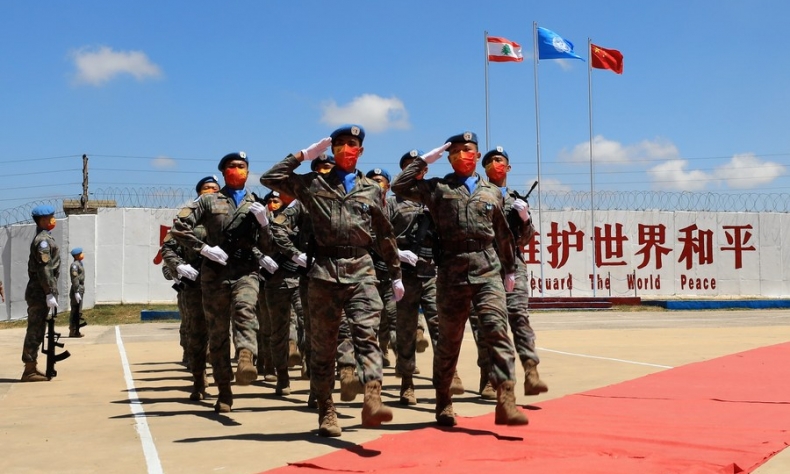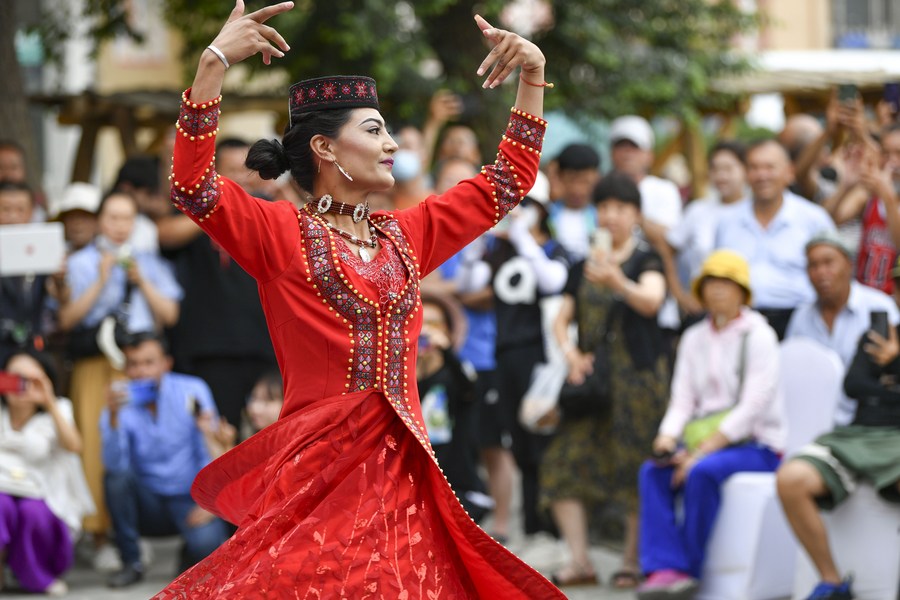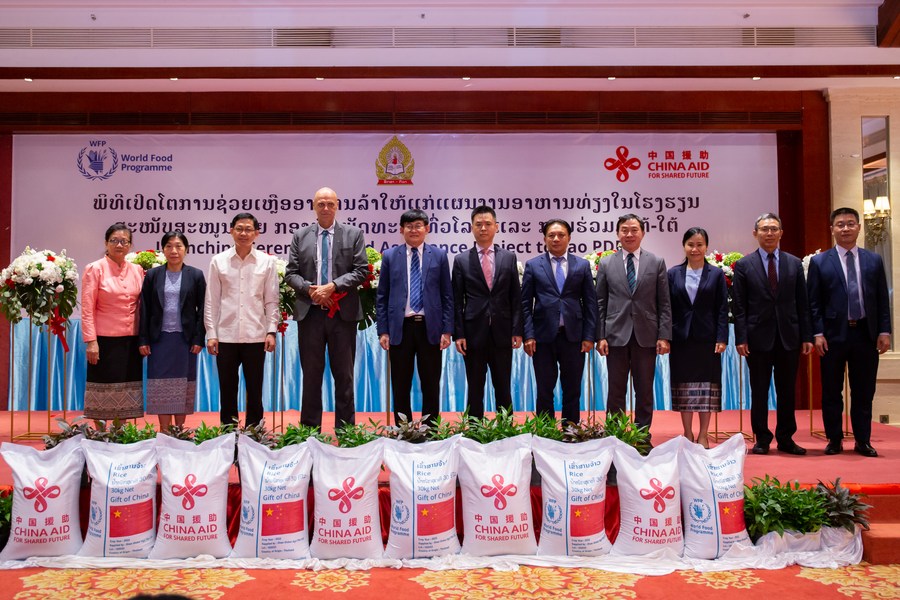A Common Approach to Security

All countries have the right to choose their own paths of human rights development, and different civilizations and countries should respect, conduct exchanges with and learn from each other.
Security is one of the most fundamental human rights and is a concrete embodiment of the right to life. The preamble to the UN Charter begins with, “We the peoples of the United Nations determined to save succeeding generations from the scourge of war, which twice in our lifetime has brought untold sorrow to mankind, and to reaffirm faith in fundamental human rights, in the dignity and worth of the human person, in the equal rights of men and women and of nations large and small…”
However, during the more than 70 years since the end of World War II, conflicts and wars have never ceased. In recent years, the international security situation has deteriorated, regional conflicts have intensified, human dignity has been trampled on, and basic security and international justice have still not been achieved.
Against this backdrop, China has proposed the Global Security Initiative (GSI), while calling for upholding the common values of humanity, namely, peace, development, equity, justice, democracy and freedom.
The initiative advocates a common, comprehensive, cooperative and sustainable security concept, emphasizing cooperation rather than confrontation. The values embodied in the GSI transcend the barriers of different systems and ideologies.
UN principles
It is an important objective and guiding principle of the UN to promote and protect human rights. At present, the development of the international human rights cause is facing traditional and new types of threats and challenges, including uncertainty in the political, economic and scientific fields. As UN Secretary General António Guterres pointed out when addressing the UN Human Rights Council in February 2017, “Our world is becoming more dangerous, less predictable and more chaotic. New conflicts are multiplying. Old ones never die.”
Peace and human rights are inextricably linked. The GSI emphasizes “abiding by the purposes and principles of the UN Charter.” The Global Security Initiative Concept Paper China issued in February begins with, “The issue of security bears on the wellbeing of people of all countries, the lofty cause of world peace and development, and the future of humanity.” It adds, “It is our common aspiration to achieve lasting world peace, so that all countries can enjoy a peaceful and stable external environment and their people can live a happy life with their rights fully guaranteed.”

The GSI underlines maintaining security in traditional and non-traditional areas. It advocates that all countries should practice the principles of extensive consultation, joint contribution and shared benefits in global governance, and work together to address regional disputes and global challenges such as terrorism, climate change, cybersecurity and biosecurity. They need to join efforts to explore multiple channels, develop a holistic solution, and improve relevant rules, so as to find sustainable solutions, promote global security governance and prevent and resolve security challenges.
The relationship between security and development is mutually reinforcing and inseparable. Security is a prerequisite for development, and development is a guarantee for security. Development and security are two sides of the same coin of human rights, just like the two wings of a bird. At present, most regional conflicts in the world are rooted in extreme poverty and lack of resources. The GSI has shifted the connotation of security from a narrow focus on confrontation between countries to a concern for economic development and social stability.
Key directions
National and regional security is a fundamental condition for safeguarding human rights. The concept paper underscores the important principles of respecting the sovereignty and territorial integrity of all countries and taking the legitimate security concerns of all countries seriously. It emphasizes promoting coordination and sound interaction among major countries, and building a major country relationship featuring peaceful coexistence, overall stability and balanced development. It also highlights the importance of promoting political settlement of international and regional hotspot issues and offers concrete paths to solve problems, such as strengthening maritime dialogue and exchange and practical cooperation.
The UN’s role in ensuring global security should be given full play. The concept paper considers abiding by the purposes and principles of the UN Charter to be fundamental. China will actively participate in the formulation of a New Agenda for Peace and other recommendations from the UN secretary general’s report Our Common Agenda. The country calls for strengthening the UN’s role as the central coordinator in the global fight against terrorism, supporting the international community in fully implementing the UN General Assembly and Security Council resolutions on counter-terrorism and the UN Global Counter-Terrorism Strategy, and jointly cracking down on all terrorist organizations and individuals designated by the Security Council.

In the face of global security challenges, humanity should act as a community with a shared future. The concept paper stresses the importance of firmly upholding the consensus that “nuclear war cannot be won and must never be fought;” fully implementing the resolution of Promoting International Cooperation on Peaceful Uses in the Context of International Security adopted at the 76th Session of the UN General Assembly, aimed at promoting cooperation on the peaceful use of science and technology; deepening international cooperation in fields such as information security and outer space; strengthening biosecurity risk management; and stepping up international security governance on artificial intelligence and other emerging technologies. It calls for supporting the leadership role of the World Health Organization in global public health governance, maintaining global food and energy security, and full and effective implementation of the UN Convention Against Transnational Organized Crime. It also urges all countries to cooperate in areas such as addressing climate change and maintaining stable and smooth supply and industrial chains, as well as accelerating the implementation of the UN 2030 Agenda for Sustainable Development.
Global dialogue
All countries have the right to choose their own paths of human rights development, and different civilizations and countries should respect, conduct exchanges with and learn from each other. No country is qualified to act as the judge on human rights, and human rights should not be used as a pretext for interfering in other countries’ internal affairs or holding back other countries’ development. China respects the path of human rights development chosen by each country independently and in accordance with its own national conditions. It opposes the politicization, weaponization and instrumentalization of human rights issues.
China calls for the comprehensive promotion and protection of human rights. The rights to subsistence and development are the primary human rights. Civil and political rights and economic, social and cultural rights must be given equal importance and advanced in a holistic way. There must be no double standards. Unilateral coercive measures are contrary to international law and infringe on the basic human rights of the people of the countries concerned.
China will promote international dialogue and cooperation on human rights. There is no best human rights protection, only better. Therefore, human rights dialogue should be encouraged, experiences should be exchanged, common values of humanity should be jointly promoted, and global human rights governance should be pushed toward a more fair, just, reasonable and inclusive direction.
The UN Human Rights Council should be UN membership-led and become a stage for constructive dialogue and cooperation, rather than an arena for political manipulation and bloc confrontation.
The author is vice president of the China Institute of International Studies.
 Facebook
Facebook
 Twitter
Twitter
 Linkedin
Linkedin
 Google +
Google +










